Jump to the content
- {{#headlines}}
- {{title}} {{/headlines}}
Professor Dr Hans-Christian Pape
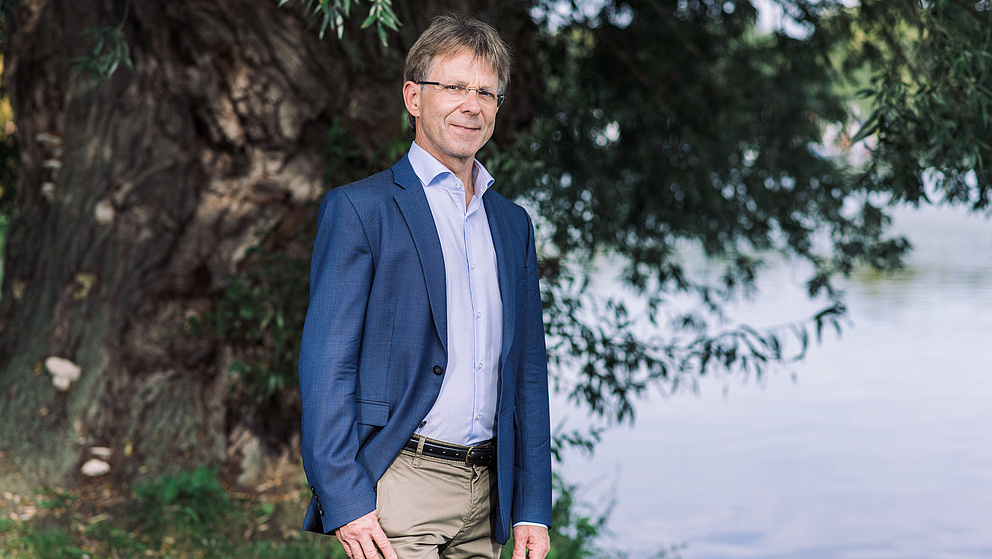
In January 2018, the neurophysiologist Hans-Christian Pape assumed the office of President of the Alexander von Humboldt Foundation.
Having originally read biology, Hans-Christian Pape took a doctorate in biology and medical neuroscience at the University of Essen in 1986. He was subsequently awarded a fellowship abroad by the Deutsche Forschungsgemeinschaft (DFG) and became a postdoctoral researcher in the United States, at the State University of New York at Stony Brook and at Yale University. In 1992, Hans-Christian Pape completed his habilitation in physiology at Ruhr-Universität Bochum and from 1994 to 2004, was a professor and director of the Institute of Physiology at the University of Magdeburg. He then moved to the University of Münster where he has been the head of the Medical Faculty’s Institute of Neurophysiology ever since.
Hans-Christian Pape is a leading expert in the neurophysiological foundations of emotional behaviour. He has gained a special reputation for his research on anxiety and anxiety-related disorders, fear and fear memory as well as the processes regulating sleep and wakefulness. In recognition of his work, Pape has won many distinguished research awards such as the Gottfried Wilhelm Leibniz Prize and the Max Planck Research Award, which is granted jointly by the Humboldt Foundation and the Max Planck Society.
In addition to conducting research, Hans-Christian Pape is active both nationally and internationally in a number of advisory and consultative bodies. In 2005, he became a member of the German Academy of Sciences Leopoldina and from 2011 until 2017, was a member of the German Council of Science and Humanities, advising the federal and länder governments on the content-based and structural development of universities, science and research in Germany. In this capacity, he was most recently head of the Scientific Commission and was a periodic member of the Executive Committee. Since 2017, he has been a member of the Selection Commission for the Gottfried Wilhelm Leibniz Prize, awarded by the Deutsche Forschungsgemeinschaft.
Hans-Christian Pape is married and has two children.
Professor Dr Helmut Schwarz
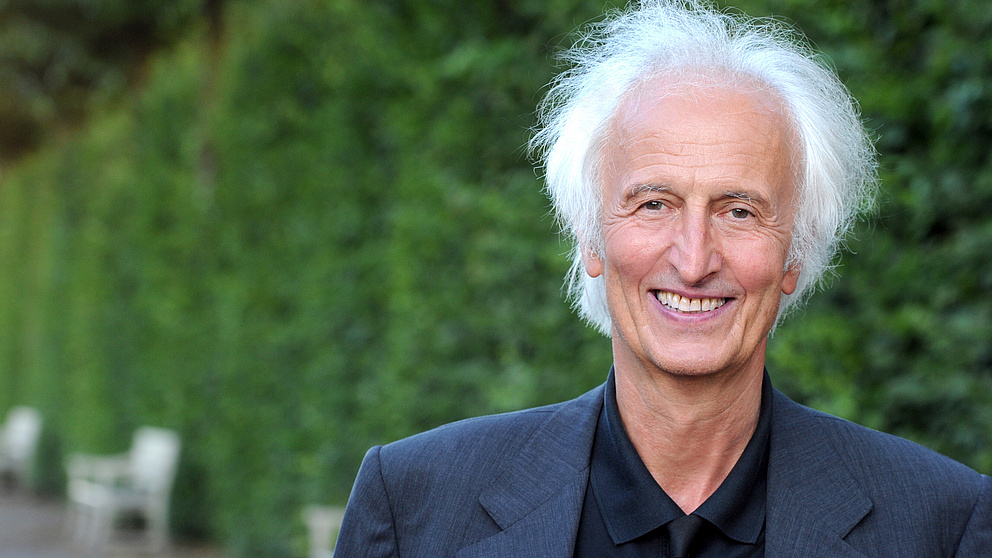
In January 2008, one of the leading international researchers in the field of molecular chemistry, Helmut Schwarz, acceded to the office of President of the Humboldt Foundation. After reading chemistry, he took his doctorate at Berlin University of Technology (TU) in 1972, completed his professorial qualifications there in 1974 and was appointed to a professorship for the theory and practice of mass spectrometry four years later. Helmut Schwarz has been Professor for Organic Chemistry at Berlin TU since 1983.
He has worked as a visiting professor at a number of research institutions abroad, including Cambridge (Great Britain), Jerusalem and Haifa (Israel), Lausanne (Switzerland), Canberra (Australia), Innsbruck (Austria) as well as Paris and Strasbourg (France). He has been granted numerous awards for his work in basic research, amongst others, the Otto Bayer Award for Chemistry (1989), the German Research Foundation's Gottfried Wilhelm Leibniz Award (1989), the Alexander von Humboldt Foundation's Max Planck Research Award (1991), the International Mass Spectrometry Society's J.J. Thomson Medal in Gold (1994), the German-Israeli Lise Meitner-Alexander von Humboldt Award (1997), the German Chemical Society's Liebig Medal (1998), the ETH Zurich's Prelog Medal in Gold (2000), the American Chemical Society's F. H. Field und J. L. Franklin Award (2001), the Otto Hahn Award for Chemistry and Physics (2003), the Erwin Schrödinger Award (2008), the European Academy of Sciences' Blaise Pascal Medal in Chemistry (2011), the Officer's Cross of the Order of Merit of the Federal Republic of Germany (2011), the Göttingen Academy of Sciences' Lichtenberg Medal (2012), the WATOC Schrödinger Medal 2015, the Karl Ziegler Prize of the GDCh (2015), the New Frontiers of Hydrocarbons Prize of the ENI Foundation, Rome (2015) and the Order of the Rising Sun, Gold and Silver Rays of the Government of Japan (2018).
Helmut Schwarz was one of the first new members to be accepted into the Erfurt Academy of Arts and Sciences when it reopened in 1991. Amongst others, he is also a member of the German Academy of Sciences (Leopoldina), the Academia Europaea (London), a corresponding member of the Göttingen Academy of Sciences, honorary member of the Learned Society of the Czech Republic (Prague), fellow of the Institute for Scientific Information Database of Highly Cited Researchers, member of the German Academy of Engineering, foreign fellow of the Estonian Academy of Sciences (Tallinn), member of the European Academy of Sciences and Arts (Salzburg), member of the European Academy of Sciences (Liège), fellow of the American Academy of Arts and Sciences (Cambridge/MA), foreign fellow of the National Academy of Sciences, India, fellow of the Academy of Sciences of Moldova, as well as honorary member of the Accademia delle Scienze dell'Istituto di Bologna.
Furthermore, he was one of the founding members of the Berlin-Brandenburg Academy of Sciences and Humanities and served as Vice-President from 1998 to 2003. The Israel Institute of Technology TECHNION in Haifa (Israel), the Hebrew University of Jerusalem (Israel), the University of Innsbruck (Austria), the Weizmann Institute of Science Rehovot (Israel), the ETH Zurich (Switzerland), Sofia University "St. Kliment Ohridski" (Bulgaria), the Hanyang University Seoul (South Korea), the Academy of Sciences of Moldova and the Universidad Nacional de Córdoba (Argentinien) have all awarded him honorary doctorates.
In addition to his research work, Helmut Schwarz is a busy editor and member of the editorial board of various scientific journals as well as having made a name for himself as a science policy expert. From 2001 to 2007, he was Vice President of the German Research Foundation (DFG).
Professor Schwarz is married and has a son.
Professor Dr Wolfgang Frühwald
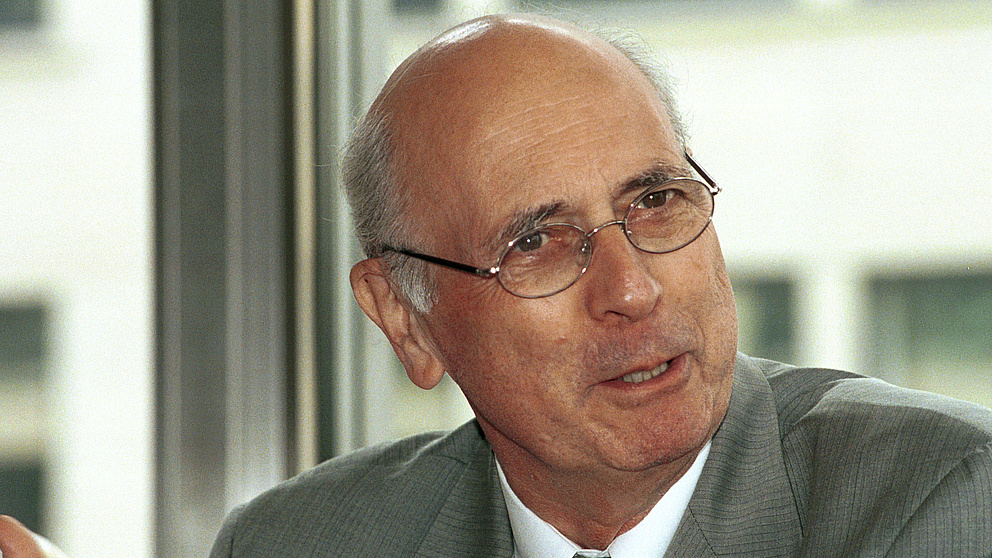
German studies specialist Wolfgang Frühwald (born 1935) was the first humanities scholar holding the presidency of the Alexander von Humboldt Foundation. He obtained his Ph.D. in 1961 and qualified as post-doctoral lecturer in 1969 at the Ludwig Maximilians University Munich. After having worked as scientific research assistant and lecturer at the universities of Munich, Bochum, Erlangen-Nuremberg and Muenster, he was appointed as Full Professor at the University of Trier-Kaiserslautern in 1970. In 1974, he went to Ludwig Maximilians University Munich as Full Professor for History of German Literature. Wolfgang Frühwald was distinguished Max Kade Visiting Professor at the University of Indiana (Bloomington, USA) in 1985, Degussa Visiting Professor at the Johann Wolfgang Goethe University Frankfurt in 2002, and Gutenberg Visiting Professor at the University of Mainz in 2003. Since fall 2003 he is professor emeritus.
Wolfgang Frühwald served in many ways as scientific counsel and administrator. He was member of the German Science Council from 1982 to 1987 and member of the Council for Research, Technology and Innovation with the Federal Chancellor from 1994 to 1998. For more than a decade he held offices with the German Research Foundation, initially as elected peer reviewer and head of a review committee, then as member of the Senate and the Joint Committee (1986 - 1991), and finally as President (1992 - 1997). From 1994 to 1996 he was also President of European Heads of Research Councils (Eurohorcs). Wolfgang Frühwald served several times as Dean (in Trier and Munich) and Vice President of Ludwigs Maximilians University Munich. From 1999 to 2007 he was President of the Alexander von Humboldt Foundation.
In the course of his career Wolfgang Frühwald has been granted numerous scientific awards. He is corresponding member of the Academies Arts and Sciences in Goettingen, Duesseldorf, and Berlin-Brandenburg, foreign member of the Polish Academy of Arts and Sciences and the Academy of Arts and Sciences in Turin and member of the German Academy of Natural Scientists Leopoldina (Halle). Among other awards, he was awarded the Knight Commander's Cross of the Order of Merit of the Federal Republic of Germany, the Bavarian Order of Merit, the Bavarian Maximilian Order for Science and the Arts, the Medal of Merits of the State Baden-Wuerttemberg, and the Grand Cross of the Order of Merit of the State Lower Saxony. He received honorary doctorates from the universities in Dublin (Ireland), Bristol (UK), Jerusalem (Hebrew University), Muenster (Germany) and Sofia (Bulgaria). In 2002, Wolfgang Frühwald was decorated with the Alfried Krupp Scientific Award.
Professor Dr Reimar Lüst
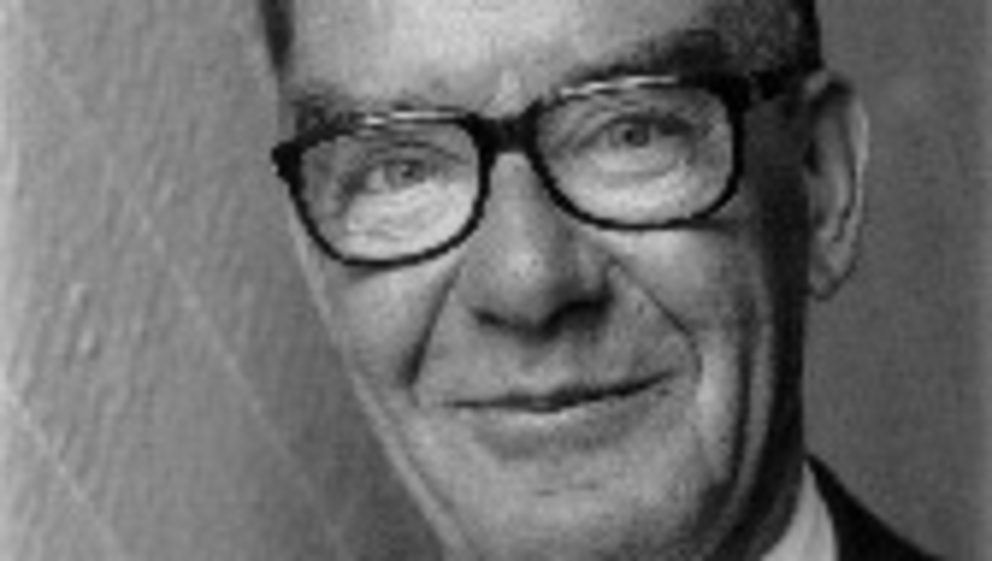
Reimar Lüst, an astrophysicist, assumed office as the fourth President of the Humboldt Foundation in a time of political upheaval. The European revolutions in 1989 and German reunification in 1990 confronted him and the Foundation with new challenges. Experience he gained as Chairman of the Science Council (1969-1972) and President of the Max Planck Society (1972-1984) helped him meet these challenges.
Lüst was born in Wuppertal in 1923, studied at Frankfurt/Main and obtained his doctorate in Göttingen. In 1960, he became a member of the Max Planck Institute for Physics and Astrophysics in Munich and in 1963 was appointed Director of the Institute for Extraterrestrial Physics. At the same time, he was Professor at the two universities in Munich. As Director and subsequently Vice-President of the European Space Research Organization (ESRO) and Director General of the European Space Agency (ESA) for six years (1984-1990), Lüst played an essential role in European space research.
Professor Dr Wolfgang Paul
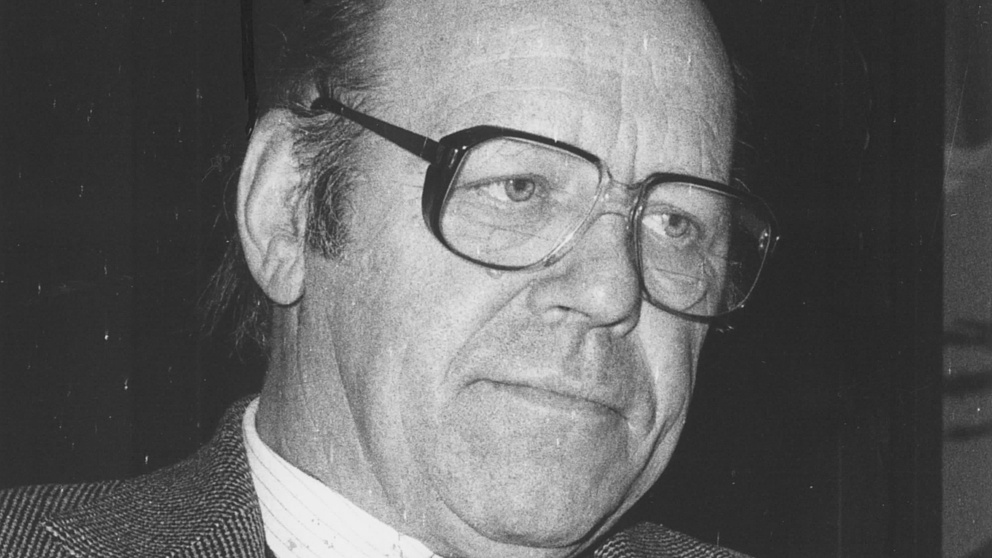
As the third President of the Foundation, Wolfgang Paul, a pioneer in the field of particle physics, consistently supported the principle of "quality before quantity" and the intensification of worldwide contacts with the Humboldt family. He took a special interest in the development of the Feodor Lynen Programme for young German researchers and the extension of the Humboldt Research Award Programme to include humanities.
Wolfgang Paul was born in Lorenzkirch, Saxony, in 1913 and died in Bonn in 1993. He studied in Munich and Berlin and qualified as post-doctoral lecturer in Kiel in 1944. Apart from being Professor and Director of the Institute of Physics at Bonn University from 1952 on, he assumed leading functions at the Nuclear Research Centre in Jülich , CERN in Geneva and the German Electron Synchrotron (DESY) in Hamburg. For the development of the "Paul trap", with which it is possible to capture atomic nuclei, he and Hans G. Dehmelt and Norman F. Ramsey jointly won the Nobel Prize for Physics in 1989. He donated a considerable part of the cash award accompanying his Nobel Prize to the Wolfgang Paul Foundation administered by the Alexander von Humboldt Foundation.
Professor Dr Feodor Lynen
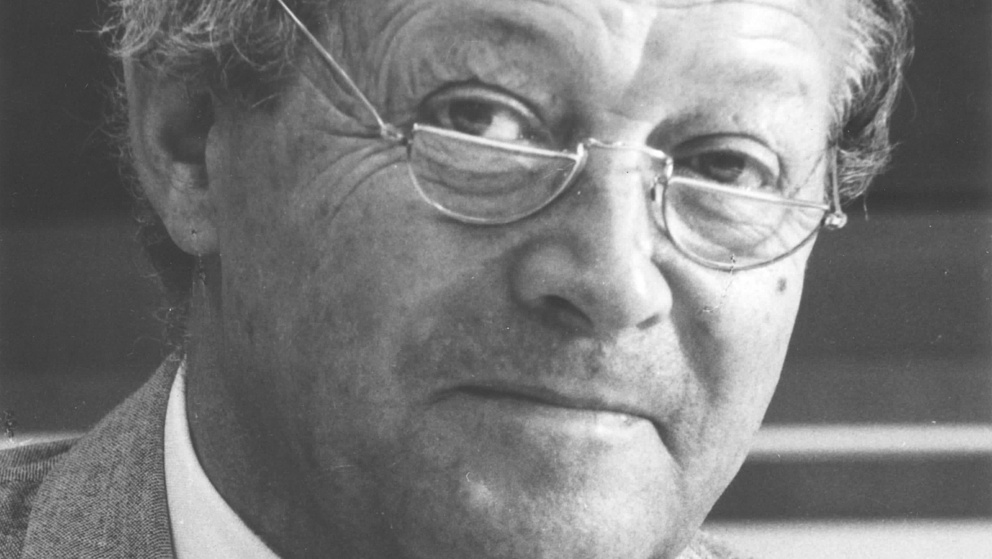
As the second post-war President of the Humboldt Foundation, Feodor Lynen, one of the great architects of classical biochemistry, consistently supported the principle of quality and abstinence from politics of the day. So it was possible, under his aegis, to resume academic exchanges with China and considerably intensify those with Japan. His idea that exchanges require reciprocity fell on fertile soil in Japan. He bequeathed to the Humboldt Foundation the programme named after him, enabling young German scholars to spend research periods abroad at the institutes of members of the Humboldt Network.
Feodor Lynen spent all his life (1911-1979), including his academic life, in Munich. Doctorate in 1937, qualification as post-doctoral lecturer in 1941, assistant professor in 1942, associate professor in 1947 and full professor in biochemistry in 1956 - all this at the Ludwig Maximilian University in Munich. From 1956 on, he was Director of the Max Planck Institute for Cell Chemistry (which was integrated into the Max Planck Institute for Biochemistry in 1972) and, in 1964, together with Konrad Bloch, he won the Nobel Prize for Medicine for his work on the mechanism and regulation of cholesterol and fatty acid metabolism.
Professor Dr Werner Heisenberg
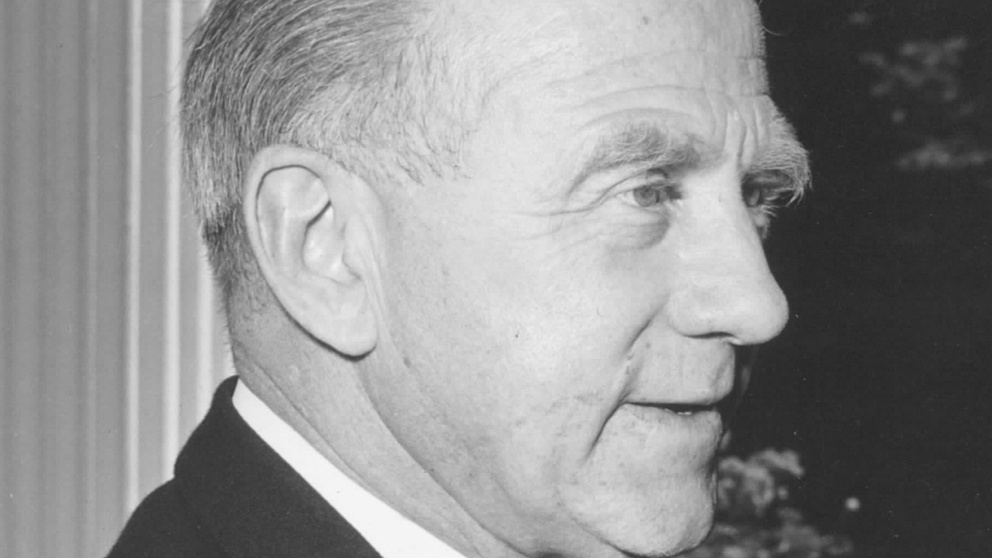
As the first President of the re-established Alexander von Humboldt Foundation, Werner Heisenberg, one of the greatest physicists of the 20th century, not only helped to mould the Foundation's principles. He also represented them with vehemence externally. His name vouched for integrity, academic quality and unerringness in human and political judgement. His presidency was seen as a signal in often still sceptical foreign countries. He succeeded in introducing the Foundation's differentiated selection procedure, in which all disciplines and nations enjoy equal status.
Professor Heisenberg was born in Würzburg in 1901 and died in Munich in 1976. These dates frame an outstandingly successful life as a scientist. He obtained his doctorate in Munich at the age of 22, qualified as post-doctoral lecturer in Göttingen at 23 and, at the age of only 26, became full professor in theoretical physics at Leipzig. At this age, he formulated the principle of "uncertainty relationship" for which he won the Nobel Prize for Physics in 1932.
